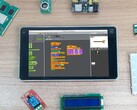Google Cardboard first hit the market as a cheap and affordable way for users to start exploring virtual reality using smartphones that they already owned. Five years later, Google, sadly, has all but abandoned its pursuit of smartphones as a basis for moving forward with VR with the official termination of its more polished Daydream VR efforts. Of course, it is not alone, with Samsung similarly abandoning its own Galaxy VR by noticeably dropping support for it on its latest flagship, the Galaxy Note 10.
In a glimmer of hope for those who were sold on the concept of turning their smartphone into a VR headset, Google has announced that is open-sourcing the Cardboard project to let the developer community continue to build Cardboard experiences into the future. This includes releasing libraries for developers to build Cardboard apps for iOS and Android phones brought to life with Cardboard viewers. The company is also supporting the effort with developer documentation, source code and access to the latest releases.
VR is at something of a tipping point. Although Google ultimately sold 15 million Cardboard headsets (with many more copies also hitting the market), even fully-fledged VR headsets from Oculus and HTC haven’t exactly set the market on fire. Even the standalone Oculus Quest that eliminates wires and which effectively builds a smartphone into the headset itself, while reasonably popular, can’t be described as a runaway hit. Chief among the usability issues include nausea, which is something that seems unlikely to be eliminated entirely in the near future, if at all.


 Deutsch
Deutsch English
English Español
Español Français
Français Italiano
Italiano Nederlands
Nederlands Polski
Polski Português
Português Русский
Русский Türkçe
Türkçe Svenska
Svenska Chinese
Chinese Magyar
Magyar







